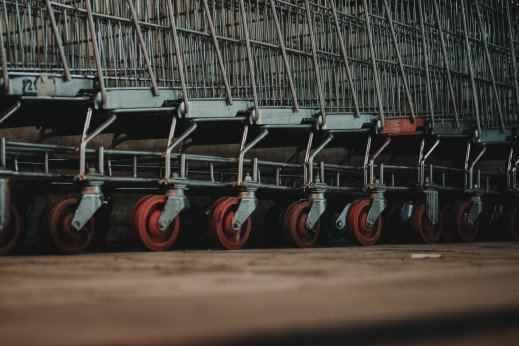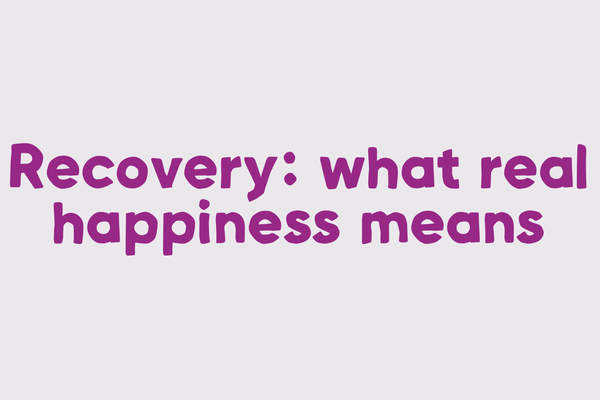Unprecedented. This is one of the most frequently used terms to describe the last few months since the pandemic of coronavirus has rippled through the United Kingdom.
Changes to our way of life have never been so drastic in peace time, with the enforcement of social distancing and self-isolation, the closure of schools and the economy coming to a grinding halt – the list goes on. Many are fearful and anxious; it’s a challenge not to be when media outlets display naked supermarket shelves, rising infection rates and uncertainty on how long this new dystopian way of life could go on for.
So, how do these elements of drastic adjustment affect over 1.25 million people suffering from an eating disorder? With the highest incidence of mortality of any psychiatric disorder, anorexia nervosa in particular is intrinsically linked to suicide and depression – an illness that is not eradicated overnight with the announcement of a pandemic. For many sufferers, therapy appointments, daily routines, exercise habits and food availability have all been turned upside down.
Anorexia nervosa is a challenge I have grappled with for much of my adult life, reaching a crescendo last year, where I decided to take a step back from London living and my job to focus on recovery. Recovery is not linear, much like the pathology of this virus it has peaks and troughs and I write this from the vantage point of six months into committed restoration of my body and mind.
Below I share my experience thus far and thoughts on how to navigate recovery during uncertain times – this looks different to each individual. It explores finding hope and capitalising on challenges to fight food fears, breaking bad habits, embracing a kinder attitude towards exercise and uncovering new formats of support systems.
Addressing Existential Despair
It would be a lie to say I haven’t endured a handful of sleepless nights about the current status of the planet. Eating disorders are often a form of control, for me this is certainly the case, so when something so unpredictable is ruling our daily lives, it is hard to see the future. Like many nationwide, we are worried for our loved ones that are older and fearful for the workers of the NHS on the front line supporting the crisis. I feel terror when I follow scientific curves of infected countries, see eerily deserted cities and Black Friday-esque brawls for tinned food. My involvement in sustainability and depth of understanding of the climate crisis have heightened these emotions.
I have, however, decided to focus my attention to the positive narrative that has formed around the sense of community that is so often lost by our generation. The collaborative effort of businesses to support local and the kindness displayed in caring for the elderly no longer able to leave their homes fills me with hope. Whenever I feel overwhelmed, I’ll focus on the wartime spirit Britain is showing and remember, all we are doing is being asked to do is stay at home!
Fighting the Fear of Food
An abundance of time at home means substantially more time to sit on one’s thoughts and fears of food. For sufferers of an eating disorder, it is often the one thing that is on our brain constantly. I have chosen to capitalise on this time to confront those fears.
You want what you can’t have and that is true in the times of the coronavirus. My value and appreciation of food has been heightened as we witness supermarkets emptied, with NHS workers finishing 48 hour shifts unable to purchase supplies and families who often rely on foodbanks struggling. Where previously I would pace the aisles for up to an hour deciding what groceries to take from the shelves, I am now a woman on a mission, an effective decision maker as the options are limited and I am grateful for what I can get. This situation has solidified the utmost importance of how food is fuel, not the enemy.
Chartering Unsafe Territory & Breaking Bad Habits
Unnecessary stockpiling means that ‘safe’ foods considered healthy from the places I am comfortable purchasing from are no longer available. To an outsider, safe foods can appear irrational. For instance – why is it that I can consume a bowl of noodles, but a whole bowl of pasta could send my head spinning when they are essentially the same thing?! However, with no alternatives, this encourages new behaviours and combatting unsafe territory. It may seem ridiculous to feel such triumph at eating a piece of toast for breakfast, but when what was once your dinner is now your breakfast, moments like these should be celebrated.
I had penned 2020 to be the year of various unsafe food challenges with friends, whether that was pizza, milkshake or burgers. I’m using all the extra time on my well sanitised hands to slowly tackle through that list. Pasta mission is complete, yogurt well and truly ticked off, glass of wine guzzled – by the end of quarantine who knows what the possibilities are!
A free schedule also encourages Ready Steady Cook like innovation in the kitchen – I’ll be getting inventive with store cupboard staples, trialling new combinations and reacquainting my love for cooking which has always been a form of therapy in alleviating angst.
Inspired by James Clear’s book Atomic Habits, a guide on how to build good habits and break bad ones, there’s no time like the present to put a stop to the damaging behaviours and play it a little unsafe.
Exercise in Isolation
Exercise addiction comes hand in hand with an eating disorder and is religiously integrated into daily routines. In confession, this will be the largest obstacle for me as regular gym sessions are my antidote to stress and source of endorphins for when my days are a little darker and blurrier. Gyms have been an undeniable hot bed for the virus and following their closure for the foreseeable future, I am shunning my strict conventional workouts for lighter forms of exercise and being a little kinder to my body. In replacement, I’ll focus on slowing down and taking things outdoors with yoga at home, long walks in the countryside and gentle runs along the sea!
Sources of Support
Support is crucial during the current pandemic and it looks different to everyone. Creating a strong inner circle of friends and family is imperative for me.
During my lowest points, self-isolation was the norm, fuelled by the fear of food and alcohol – I retreated entirely from a formerly jam-packed calendar of events.
Now, as important as any therapy session in recovery, has been the ability to meet with family and friends to indulge in the normalcy of leisurely weekend brunches and dinner dates. Whilst this is off the cards, I will seek the support of my inner circle through long telephone calls, fun social apps such as Houseparty and Tik Tok or group meditation challenges. I will be wary of scrolling on social media for extended periods of time as this can be a trigger.
On the topic of therapy, face-to-face appointments are now limited to virtual sessions and whilst I personally find these less effective, concentrating on progress made thus far by reviewing journal exercises makes all the difference.
I will look to the healing power of nature and spend more time outdoors to relieve any negative feelings as this is one of my main coping mechanisms.
A Golden Opportunity
A smooth sea never made a skilled sailor so I will use the corona crisis as a golden opportunity to further my recovery. Despite global uncertainty, I am determined not to be ruled by food or exercise but instead take the time to be kinder and trust in the recovery process. My motivation stems beyond personal reasons; it is to ensure that I am fighting fit should one of my loved ones fall sick and to stay healthy for those that will risk their lives every day serving the NHS as this pandemic erupts.
Focusing on my gratitude for the kindness and compassion that has been displayed throughout our nation to help the vulnerable will prove an antidote to any existential fears.
Now more than ever is the time for adaptation, so I’ll embrace getting a little squidgier, enjoy my jeans starting to fit the way they used to and slowing down – who knows, in time I may just have a piece of cake.
Contributed by Amy
Amy writes at Sustainable & Social.
Disclaimer: Beat never knowingly links to triggering content, but please be aware that we cannot be responsible for the content of external blogs.
An Atypical Anorexia Sufferer Visits the Supermarket
27 May 2020These two posts, written two years apart, show how Mel managed to overcome a lot of the anxiety she felt around shopping for food.
Recovery: what real happiness means
5 January 2022By choosing recovery, you will give to yourself the best chance to find your real happiness.
Eating Disorders do not have “a look”
3 November 2021We need to challenge the perception that anorexia is purely about body image, or that we are ‘choosing’ not to eat.

